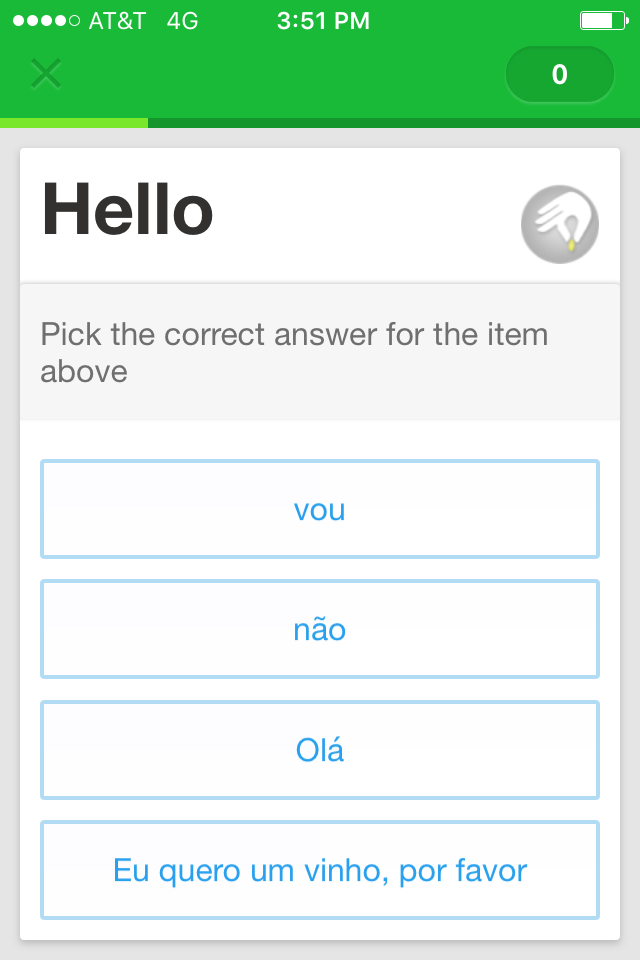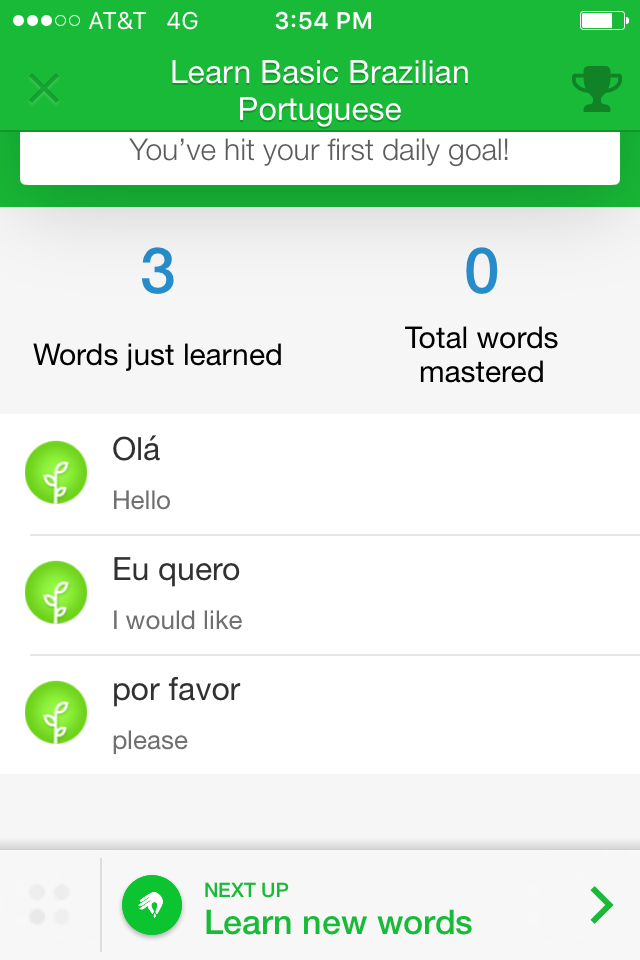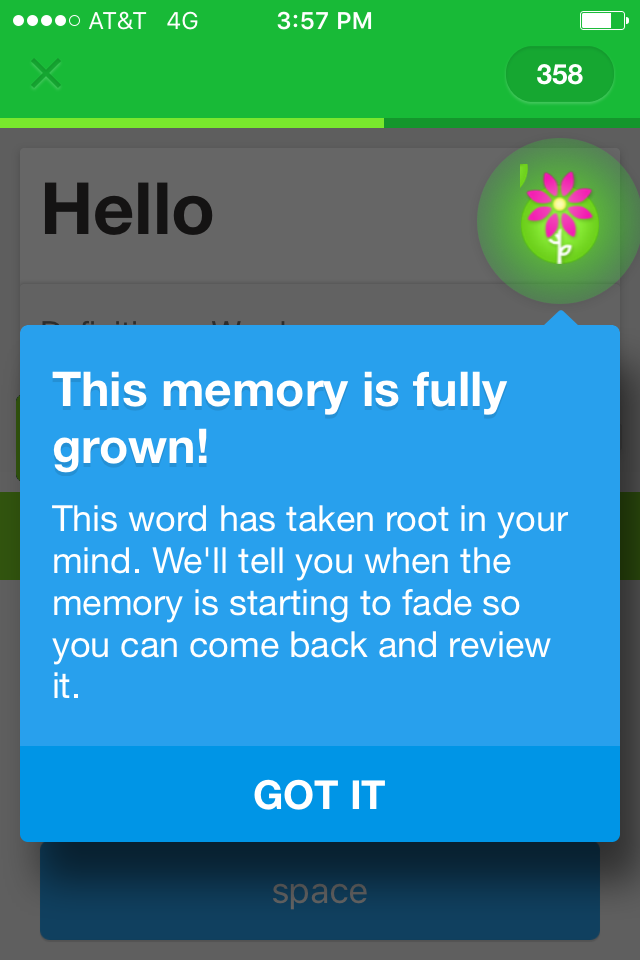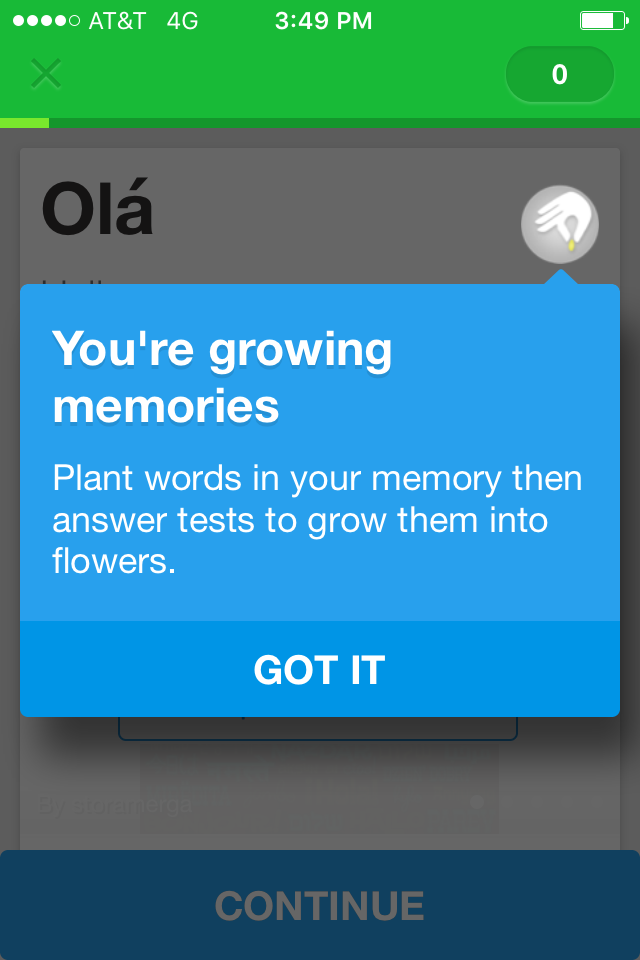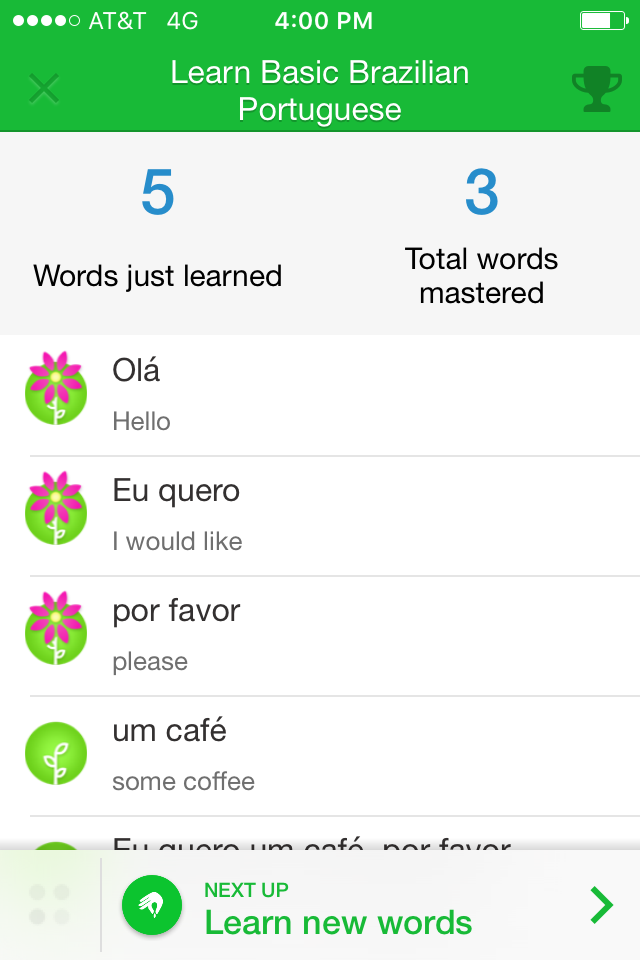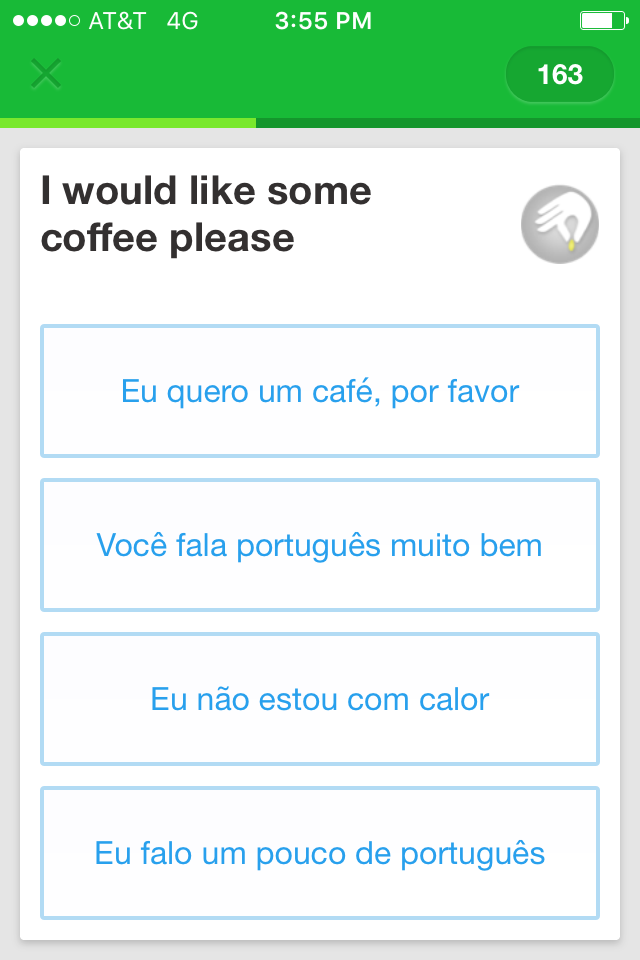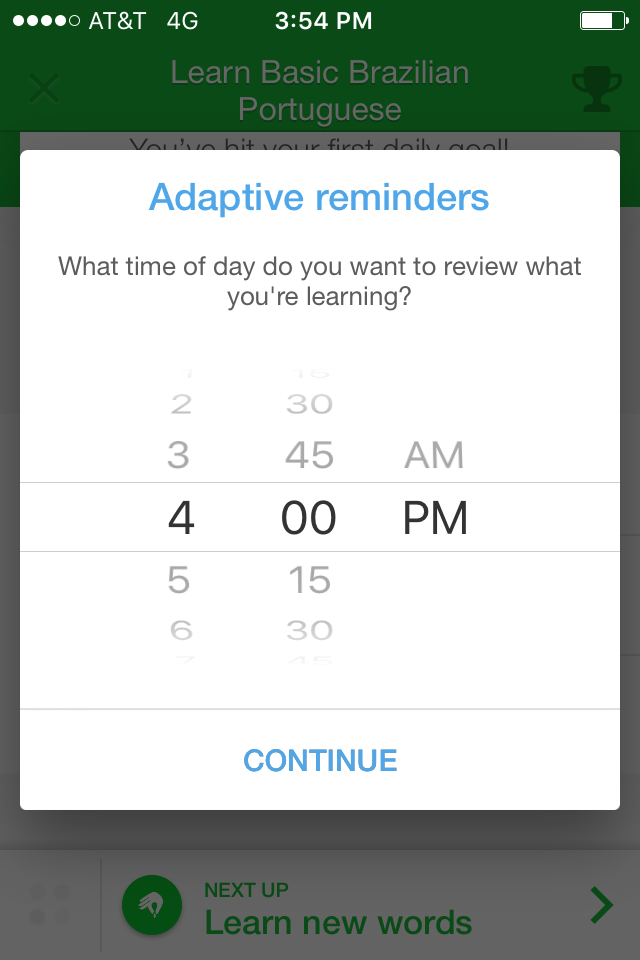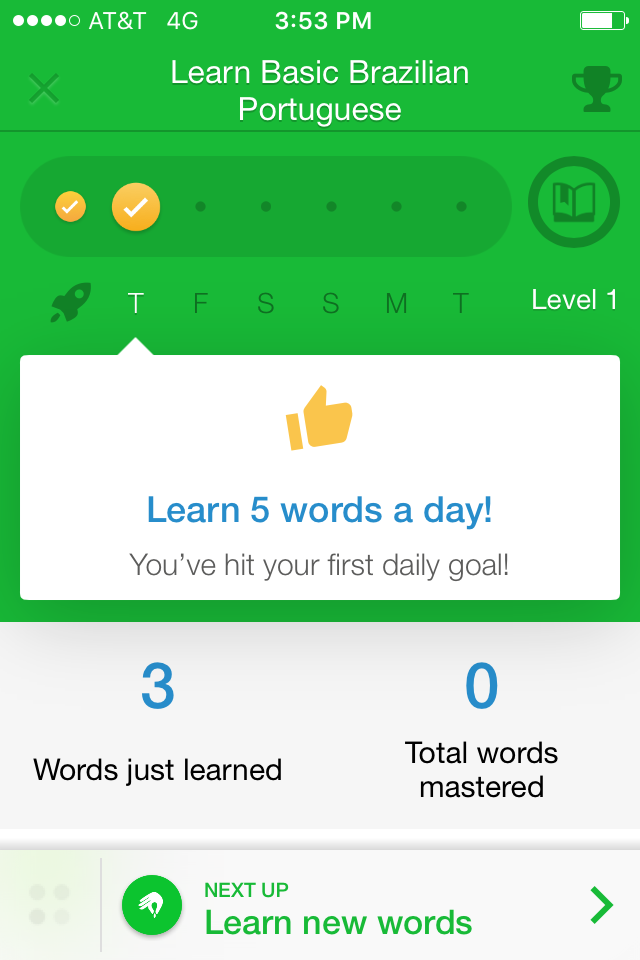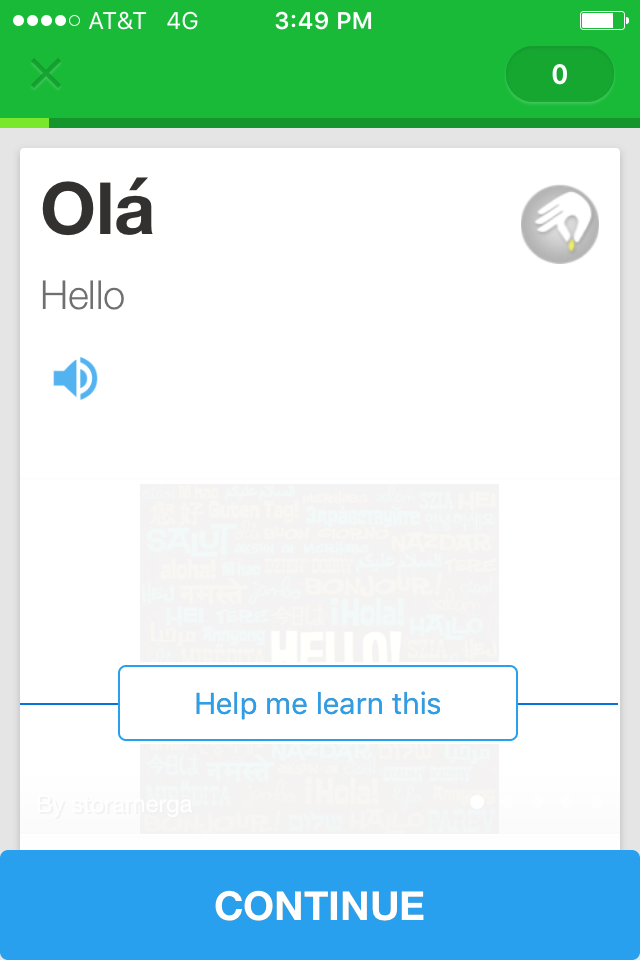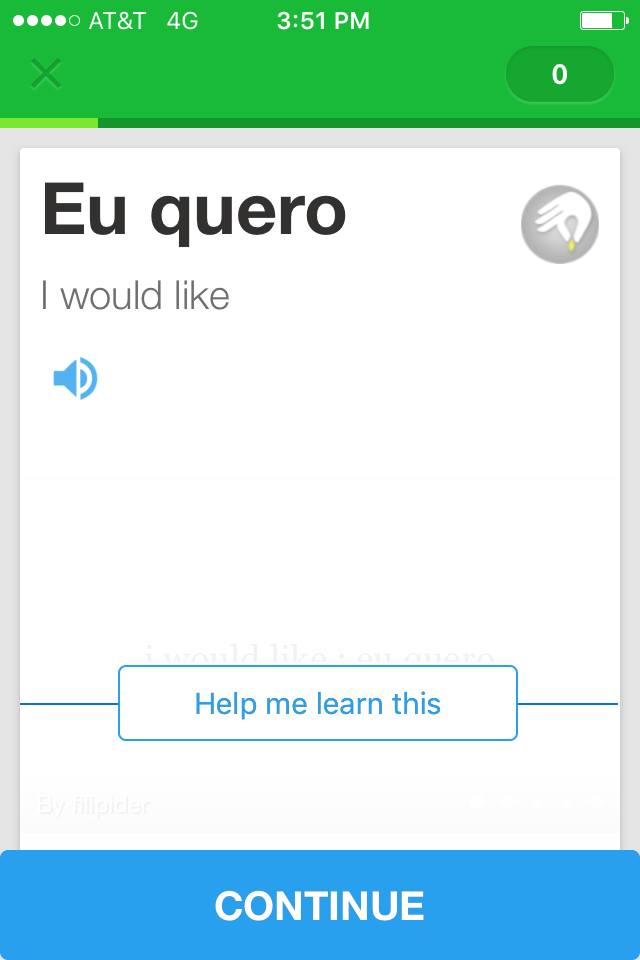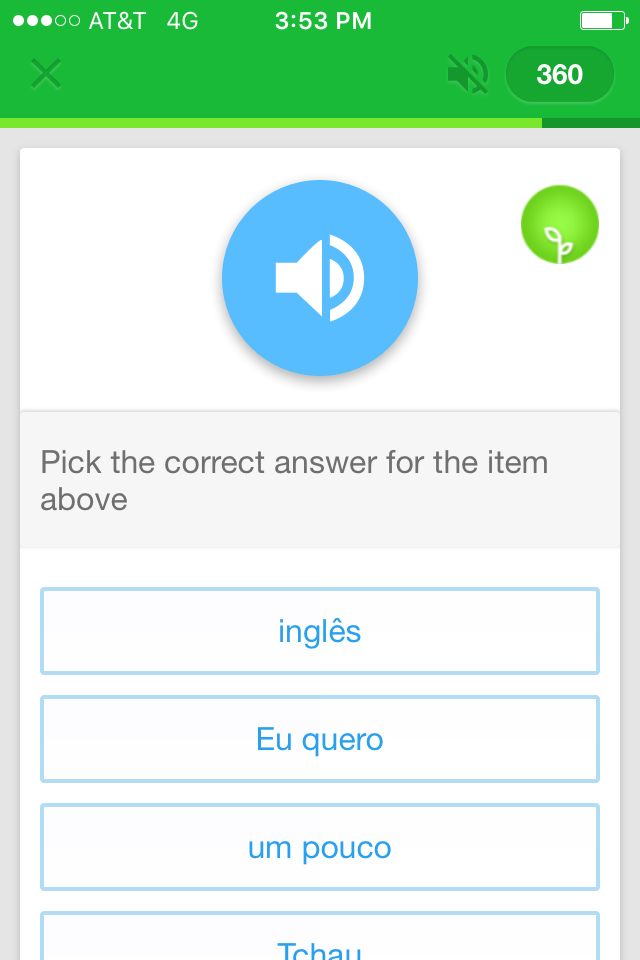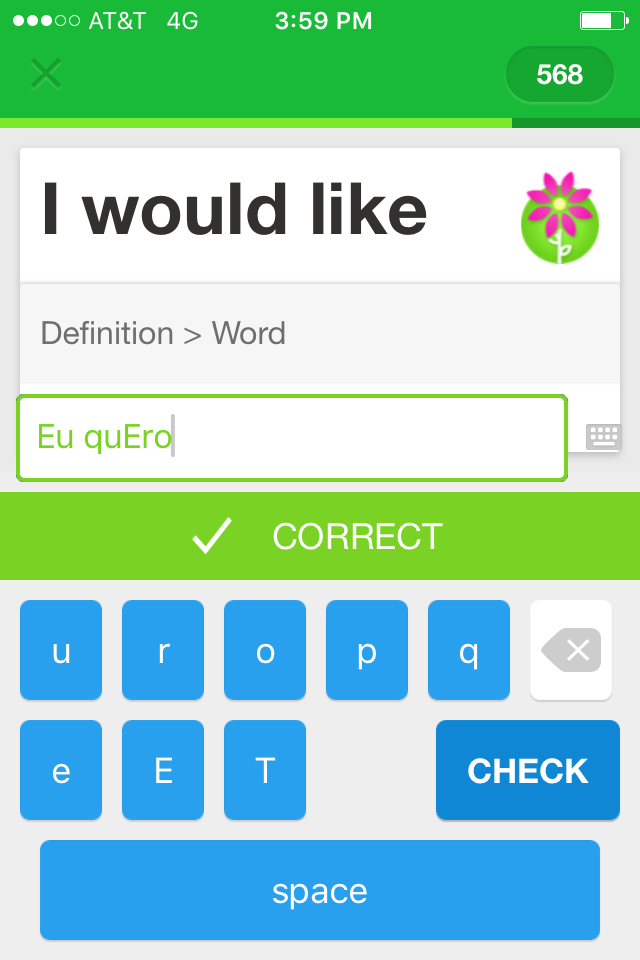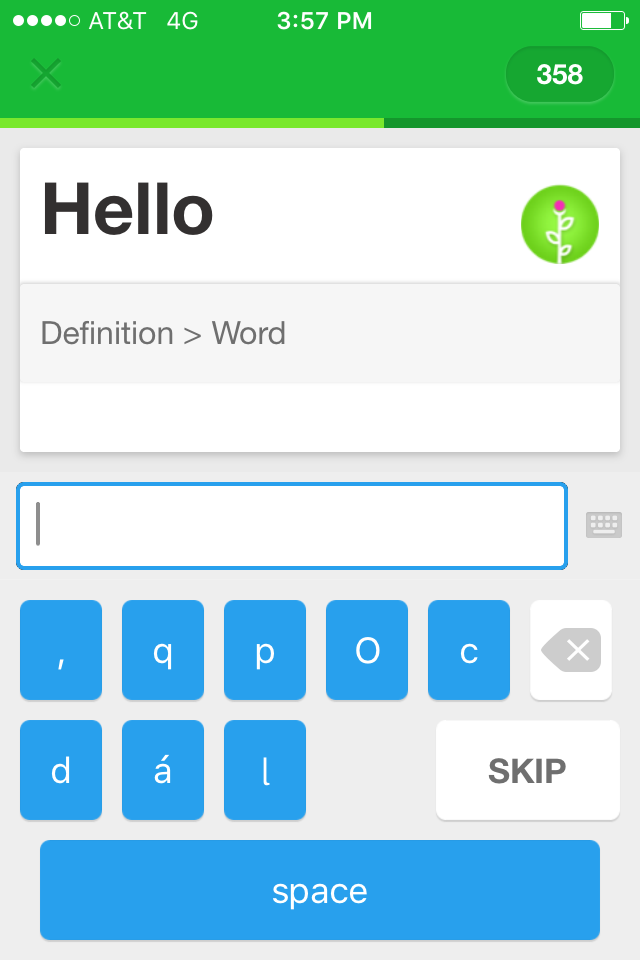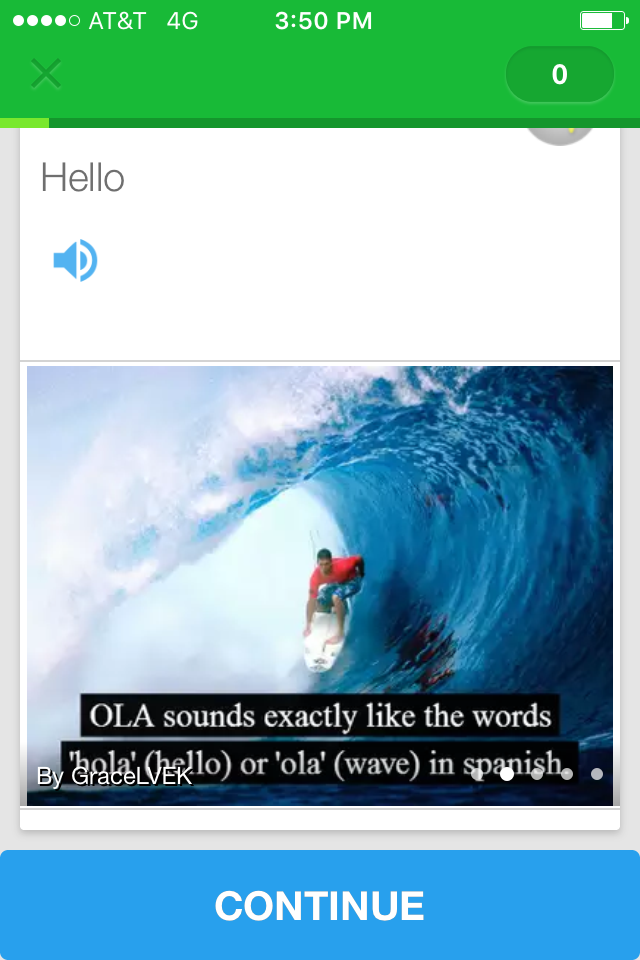Memrise

About: "Memrise is an online learning tool with courses created by its community. Its courses are mainly used to teach languages, but are also used for other academic and nonacademic subjects (such as trivia, video game trivia, and pop cultural). Memrise uses flashcards augmented with mnemonics—partly gathered through crowdsourcing—and the spacing effect to boost the speed and ease of learning." (from: https://en.wikipedia.org/wiki/Memrise)
App Analysis (iOS v. 2.1.11)
Screen-shots of the initial screens of the app
Learning
Memrise is focused on helping users memorize content, mainly single words. There seems to be a complete absence of a higher-level plan to help users build their foreign language skills. Mainly, the exercises consist of behaviouristic tests of memorized content, without almost any regard to pronunciation, listening, speaking. Language learning through Memrise is veiewd as an empty pursuit of a 'right' answer, which may blind the learners to the benefits of trying, practicing, and making mistakes.
-
 Speaking:
The app does NOT prompt the user to produce any form of speech in the target language.
Speaking:
The app does NOT prompt the user to produce any form of speech in the target language.
-
 Content:
The number of words and the semantic structure of the Portuguese course are unkown.
Content:
The number of words and the semantic structure of the Portuguese course are unkown.
-
 Estimated duration:
Daily goal is to learn 5 new words, which reflects a complete lack of ambition.
Estimated duration:
Daily goal is to learn 5 new words, which reflects a complete lack of ambition.
-
 Relevance:
'I would like some cofee, please' is taught in the first lesson, but 'My name is ___' is not.
Relevance:
'I would like some cofee, please' is taught in the first lesson, but 'My name is ___' is not.
-
 Focus:
Pressing 'Continue' repeatedly takes some of the learner's attention from learning.
Focus:
Pressing 'Continue' repeatedly takes some of the learner's attention from learning.
-
 Right:
Correct answers are rewarded with points, animations, and progress within the lesson.
Right:
Correct answers are rewarded with points, animations, and progress within the lesson.
-
 Wrong:
mistakes are marked red and need to be immediately corrected to continue the course.
Wrong:
mistakes are marked red and need to be immediately corrected to continue the course.
-
 Challenge:
Single-word, multiple-choice, translation questions are by essence not very challenging.
Challenge:
Single-word, multiple-choice, translation questions are by essence not very challenging.
-
 Metaphor:
The growing plant is a clear and visual appealing metaphor for 'growing memories'.
Metaphor:
The growing plant is a clear and visual appealing metaphor for 'growing memories'.
-
 Metacognition:
'Words Learned' (short-term memory) and 'Words Mastered' (long-term memory)
Metacognition:
'Words Learned' (short-term memory) and 'Words Mastered' (long-term memory)
Self-Efficacy tools
The goal of each lesson, of each exercise, and the overall long-term goal of the course are not clear to the user. As a consequence, it is hard for users to evaluate their learning processes and remain focused on their goals. What the the app does offer is a few important tools to help maintain the schedule of exercises.
-
 Word listing:
Displays a list of words that the user has been introduced to, which quantifies the learning process and helps the user keep track of what he/she should know.
Word listing:
Displays a list of words that the user has been introduced to, which quantifies the learning process and helps the user keep track of what he/she should know.
-
 Meaningless progress bar and meaningless points:
The points earned by the user and the progress of each lesson or exercise do not tell anything.
Meaningless progress bar and meaningless points:
The points earned by the user and the progress of each lesson or exercise do not tell anything.
-
 Adaptive reminders with daily goals:
App reminds the user to perform the daily activities.
Adaptive reminders with daily goals:
App reminds the user to perform the daily activities.
-
 Low long-term goal:
Learning only a few words a day means that becoming an intermediate Portuguese speaker may take users many years.
Low long-term goal:
Learning only a few words a day means that becoming an intermediate Portuguese speaker may take users many years.
Usability
Audio output
The app uses audio as one of the main forms of exercise prompts. For example, the user listens to the audio and finds the appropriate translation among several options. Most of these prompts, at least in the beginning, consist of single words, or very short sentences. Also, the introduction of a new word consists of displaying the written side by side with its translation and a button to hear it spoken
Screen-shots showing how the app uses the audio output
-
 Bad sound quality:
It sounds like not all audio has been recorded in a studio. It is possible to hear some undesired echo a few times.
Bad sound quality:
It sounds like not all audio has been recorded in a studio. It is possible to hear some undesired echo a few times.
-
 Non-native accents:
Apparently, not all the people who recorded the audios are native Portuguese speakers. I could sense a Spanish accent a few times.
Non-native accents:
Apparently, not all the people who recorded the audios are native Portuguese speakers. I could sense a Spanish accent a few times.
-
 Multiple voices:
More than one person has recorded the audios in Portuguese, so the learner may get used to different pronunciation styles.
Multiple voices:
More than one person has recorded the audios in Portuguese, so the learner may get used to different pronunciation styles.
Speech recognition
There is no speech recognition function in this app. Or, at least, I have not encountered an active speech recognition function in any course or exercise level I have reached.
Keyboard input
The app asks or requires the user to input information through a keyboard several times, as a way to assess and correct the user's answers to exercise prompts.
The availability of letters is limited to the ones used in the correct answer, plus a few 'wrong' options
-
 Reduced letters:
Memrise does not use the regular iOS keyboard when the user has to type in information. Instead, it provides a simpler keyboard layout, with reduced options. There is one upper-case and one lower-case key of each letter, even though the answer is not case sensitive.
Reduced letters:
Memrise does not use the regular iOS keyboard when the user has to type in information. Instead, it provides a simpler keyboard layout, with reduced options. There is one upper-case and one lower-case key of each letter, even though the answer is not case sensitive.
-
 'Skip' option:
The user may choose to proceed with the exercises without typying the answer.
'Skip' option:
The user may choose to proceed with the exercises without typying the answer.
-
 Slows down the learning process:
This approach reduces the speed of the interaction between the user and the app, that is, even when the user immediately knows the right answer to a certain question, typying it in will take him/her at least a few seconds.
Slows down the learning process:
This approach reduces the speed of the interaction between the user and the app, that is, even when the user immediately knows the right answer to a certain question, typying it in will take him/her at least a few seconds.
Other features
Crowdsourced hints: Other users may submit images to help learners understand the meaning of words. Although this is not crucial to the learning process, it might foster in its users the feeling of belonging to a community.
Conclusions
Due to its complete lack of skill-based exercises, Memrise may not be considered a language learning application. Rather than that, it is a tool for memorization that offers some language-specific collections. Memrise may be used by language learners who want to increase their vocabulary, however, memorizing individual words without context is likely to be harder than learning multiple-word sentences within a context or narrative.




